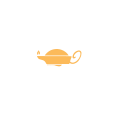18 September 2019
As Aotearoa’s aged population increases, the recognition and treatment of frailty has become crucial to all health care environments.
Ngā aratohu maimoa hauwarea | Frailty care guides, published today by the Health Quality & Safety Commission, offers health care providers practical advice on frailty.
Dr Michal Boyd, clinical lead for the Commission’s aged residential care programme, says frailty is now recognised as a medical condition. ‘Frailty is becoming more complex and requires specialised assessment and interventions to promote resilience in people who are ageing and/or have multiple health issues. Frailty is not based on the age of a person but on their physical and functional ability and signals the need for extra care.’
The guides comprises 26 practical tools covering the full spectrum of frailty, from deterioration and specific health concerns to communication and advance care planning. ‘The guides offer decision support for health care professionals to use in practice to reduce variation, provide consistency and empower nurses caring for their frail patients.’
The tools are intended to be used in any setting where people at risk of frailty receive care, including aged residential care, primary health care, community care, hospice and acute hospitals. ‘As with all guides for practice, these do not replace sound clinical judgement or individualised resident goals of care. Rather they promote early intervention and communication with the person’s health care team,’ she says.
The Commission collaborated with many people in the aged care sector to expand and update clinical information based on the registered nurse care guides developed in 2007. The original guides were developed through the residential aged care integration workgroup, a collaboration between the Waitematā District Health Board (DHB) gerontology nursing service, older adult and home health services, and leaders and clinicians working and practising in aged residential care. ‘These new guides will form the basis of future education and quality improvement initiatives within the aged residential care and community sectors. We will continue to develop these resources with the sector, and we welcome all feedback.’
Dr Boyd says the guides will be further developed to support the practice of non-regulated care staff and for whānau caring for their frail loved ones at home.‘We hope this is a valuable resource for those caring for older people requiring specialised frailty support.’
More information, and a full copy of the Guides, is available at our Frailty Care Guides Website – hqsc.govt.nz/frailtycareguides
If you require any further information or would otherwise like to feedback to the guides, please contact the ARC Programme team at arc@hqsc.govt.nz.
 Menu
Menu